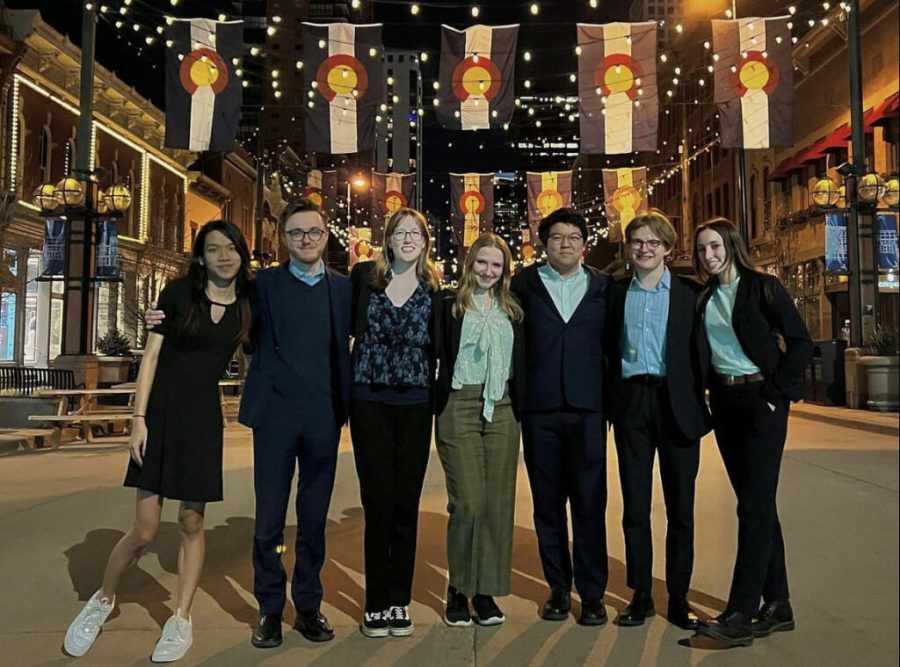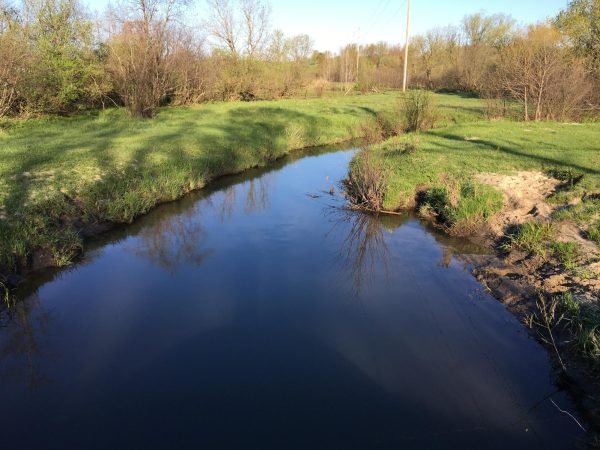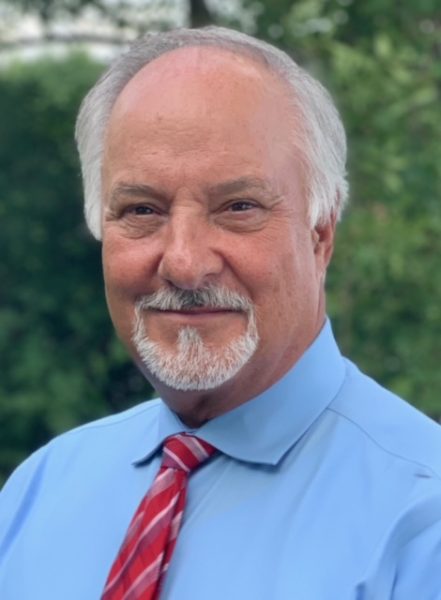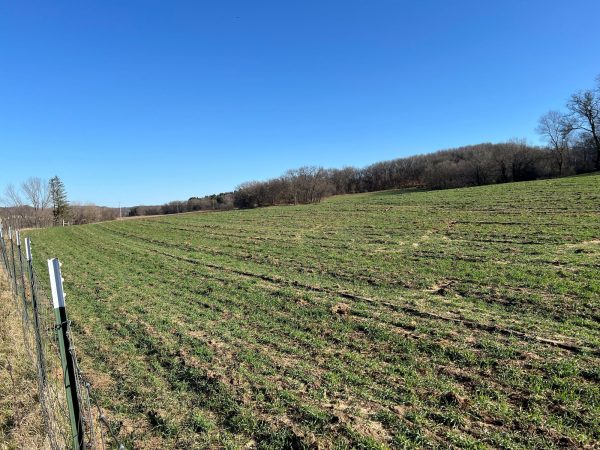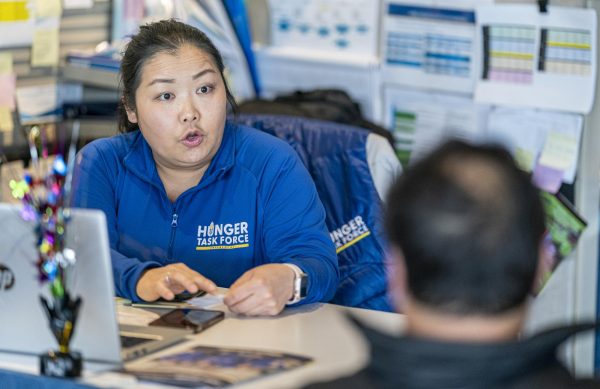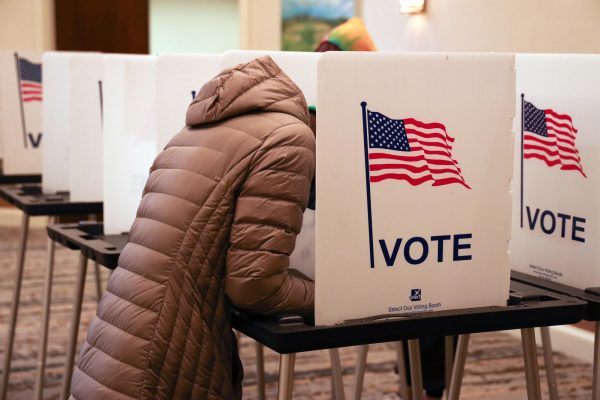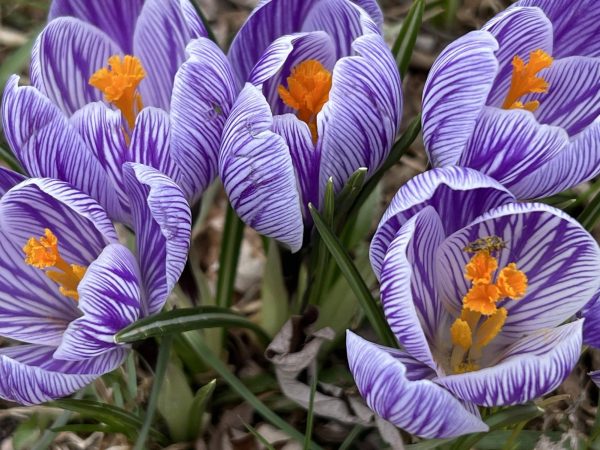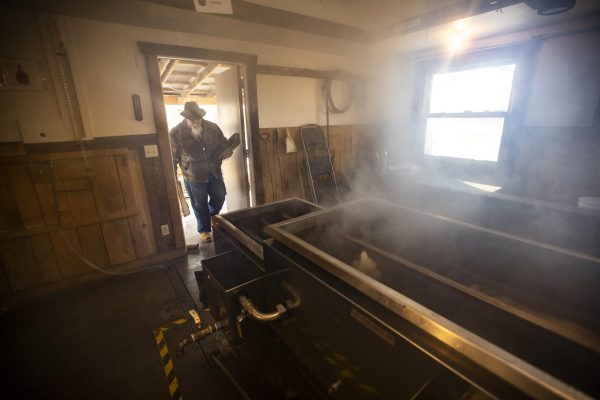Badgers win national debate championship
Members of the debate team, from left to right, are Aliya Seet, Zachary Heintz, Sophie LaRose, Emily Distler, Ethan Park, William Darbyshire and MK Denton. PHOTO BY PRANAV GOPAN
April 24, 2023
You don’t hear “Jump Around” blasted at many debate tournaments.
That changed when a team of Badgers won the national championship at the annual Yaatly Online Debating League in Denver on April 8-9, setting off a raucous celebration from the UW–Madison contingent, including the song best known for rocking Camp Randall Stadium during football games.
Six debators competed at the national level representing the Badgers. In the Grand Final round, Zach Heintz and William Darbyshire bested competitors from three other universities to take home the national championship title.
“It slowly dawned on me over the next 48 hours that I’d actually won the tournament. I didn’t quite believe it at first,” Darbyshire said in the days following the win. “The same wasn’t true for the rest of the UW–Madison team that had watched the finals and the award ceremony; they absolutely exploded into cheering and celebration. I think it’s safe to say that if the other universities hadn’t heard ‘Jump Around’ before the tournament, they have now.”
Heintz said he felt validated, and mostly relieved.
“I think our teammates got more excited than me and Will did. They were screaming and everything, so Will and I seemed a little quiet by comparison, Heintz said. “I think I mostly felt relieved. Up until that point, I was focused on each round and then the next, always with my nose to the grindstone. That moment felt like I could finally resurface and take in the view.”
YODL hosts a series of debate events throughout the year, allowing student representatives from universities across the nation to better their debate skills and explore the debate form known as BP (British Parliament) debate.
“The style of debate we do is called British Parliamentary, and it’s an extemporaneous form of debate, meaning we don’t know what we’re debating until 15 minutes before the round starts,” Heintz said. “We got some vague ideas of possible topic areas about a month before the tournament, but without knowing exactly what you’re going to be debating, it’s a little difficult to do very much preparation.”
The national championship secured by the Badgers is the first one in decades, according to Wisconsin Speech and Debate Society coach A.J. Carver. They were deemed the most persuasive in the nation, winning with their argument, “we should regret the fear of death.” They topped the competition that included representatives from the United States Air Force Academy, Regis University, and the University of Alaska-Anchorage.
Heintz and Darbyshire were joined by four others as they traveled to the campus of Metropolitan State University of Denver for the championship event. Sophie LaRose debated with Emily Distler and Ethan Park debated with MK Denton in earlier rounds of the national championship event.
Through its success in debate tournaments throughout the season, UW–Madison qualified to send three teams to the tournament, chosen from members of the Wisconsin Speech and Debate Society, a student organization on campus.
Heintz and Darbyshire had a long path to the final round.
“There were six preliminary rounds of debate before the top 16 teams broke into elimination rounds. Of 64 teams, Zach and I finished second. We then went on to quarterfinals, semifinals, and finals,” Darbyshire said.
Because the debate tournament was over a weekend and full of high-quality competition, the Badgers had to prepare meticulously and strategically.
“Our preparation ended up mostly focusing on running practice debate rounds, meeting with our coaches to discuss strategy, and meeting with the other debaters to write general topic briefs with some widely applicable information,” said Heintz.
“In terms of preparing for the tournament, the best preparation is following national political and cultural discussions. It is really helpful if you can bring an existing political philosophy to bear on the topic,” Darbyshire added.
Of course, only so much time can go into preparing for such a fast, high-stakes environment. To manage nerves and pressure before the rounds began, Darbyshire said he relied on “a lot of Diet Pepsi and focusing on the debate ahead of me.”
Heintz also found certain ways to deal with his preparations in the days and minutes leading up to debate rounds.
“I normally don’t eat much when I’m competing throughout the day and the altitude in Denver was making it a little bit difficult for me to breathe given my asthma,” he said. “Despite that, once I start debating I feel fantastic. There is nothing that gives me more adrenaline and I don’t even notice being hungry or tired.
He added: “Don’t get me wrong, give me thirty minutes after the tournament is over and I crash super hard.”
Even while the national championship tournament may seem difficult and daunting, Darbyshire believes debate is a skill worth obtaining in any context.
“I get exposed to the perspectives of other people on important issues via their arguments,” he said. “I learn something new about their lives, the topic we’re debating about, and my own opinions. Debate is great!”
At UW–Madison, there are many opportunities to get involved through the UW–Madison Speech and Debate Society.
“There’s a lot of advice people can give, but the best advice is that there is no secret to it. There is no trick, no codeword that once you say it everything will all make sense. You learn best, you figure out what you like the best, and you get immersed in the community best by doing,” Heintz said. “It’s a little ironic coming from someone who talks competitively, but an experience is worth a million words,” he added.
“I was drawn to debate because it offers the chance to formally test my understanding of the world,” Darbyshire said. “I can use anything I know in service of different arguments. [However], I was really nervous in my first debate and that was okay. Just go for it!”

